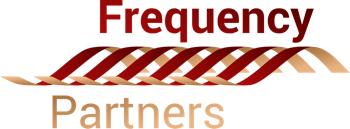Information Overload, Or How I Learned to Tolerate Facebook
I work in the world of social media, in part, buying Facebook ads for clients and managing their Facebook business pages. Here’s what I know: You voluntarily give Facebook information about you every time you check in somewhere, fill out a quiz, or answer a post that asks you to complete a sentence using predictive text on your phone.
These pieces of information are collected and used to determine your preferences, and we thank you for your compliance.
Lots of companies use this information to determine who’s the best potential customer for their product and service, whether it’s a 28-day liquid shake for the workout king or a stop at your house by a campaign volunteer asking you to post a yard sign for Candidate X.
It’s a love-hate relationship for me. I like that Facebook helps me deliver better customers to my clients, and I like that my customers’ clients are all in one place, effectively shopping while hanging out with friends. I dislike that Facebook owns me and everyone else I know. It is very dehumanizing.
Is there reasonable fear for abuse from this system? Maybe. How do you define “abuse”? Targeting my political preferences? Showing me the vacation destination I already visited? Reading fake news?
If I’ve read “fake news” and didn’t bother to confirm any of it on my own, via a secondary source, then shame on me. That’s not Mark Zuckerberg’s fault.
Zuckerberg’s pretend indignation that somehow he and the billions of people who use his platform have been betrayed is stupid, nor should he try to limit me from seeing legitimate news sources on his platform with whom he disagrees. Worse still is his supposed willingness to be regulated by lawmakers who don’t even know how Facebook works.
But Zuckerberg has an interest in making sure he knows what’s “real” on his site and what is a “bot,” or in essence, useless information and phony sources. Controlling the flow of information, whichever information he chooses, improves his ability to reach his operational goal — building on his billions of dollars, aggregating information that he can leverage for whatever purpose he wants, and eventually becoming the U.S. commander-in-chief (because no one who should be worried about his politics knows how to stop him).
Which brings me to the media. You’d have to watch the Capitol Hill hearing to know what truly happened between Zuckerberg and the senators yesterday because, as the attached image demonstrates, the media are lousy at reporting it. I’ll tell you a badly kept secret: when it comes to public hearings or other events that anyone can watch, media members don’t bother to explain it for those who didn’t tune in. They just try to out-clever one other with pithy headlines and prose. It’s like an unspoken game they play.
This makes the coverage on Facebook of the Zuckerberg hearing all the more amusing. Zuckerberg will take the fawning coverage, and even the mention of the booster seat, over any real reporting about how he’s in charge of the flow of information.
Don’t miss the irony here — the news media are reporting in a way that pleases the power holder who gives them access to their audiences — just like every other business trying to reach customers on Facebook. And that’s why you need to get your news from primary sourcing, not media.
So if you’re not watching the congressional hearing or the news media’s coverage or Facebook’s promotion of its preferred sources, you’ve got nothing to worry about. You’re living your happy-go-lucky existence, and (literally) none the wiser about all this information-grabbing. And good for you.
But if you’re on Facebook looking at cat photos or doing anything at all, you’re a hot commodity. Now, tell me about the last conversation you texted so I can sell you some yoga pants.
I originally posted this article at The Pursuit of Happiness. I made slight changes before posting to this site.
